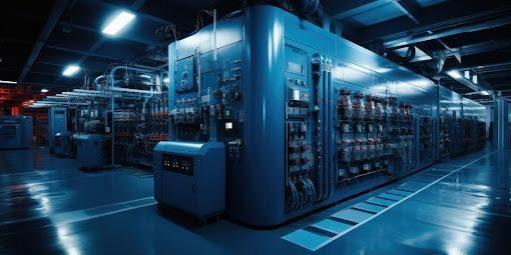
As the global energy sector transitions to renewable sources, the role of high-power conversion systems becomes increasingly pivotal. These systems, crucial for converting raw renewable energy into usable power, are undergoing advancements in efficiency and integration of green energy solutions.
Efficiency Gains and Market Impact
The efficiency of power converters has improved significantly, with some new models achieving up to 98% efficiency a significant leap from previous generations. This advancement means less energy is lost in the conversion process, making renewable sources like solar and wind more competitive against traditional fossil fuels. According to the International Energy Agency (IEA), improved conversion technologies could increase global solar and wind output by 10% in 2030.
Aritra Ghosh, an electrical engineer specializing in high-power conversion systems for renewable energy, brings a unique perspective. Focused on addressing the needs of the renewable energy sector, Ghosh has developed systems that are twice as efficient and three times more compact than traditional systems. His innovative systems outperform existing technologies, introducing faster devices and smaller passives to the industry. "Efficiency in power conversion is connected with better energy yields from renewable sources. Our latest projects aim to push these boundaries further. We want to make renewable energy more viable and cost-effective," Ghosh explains.
Scaling Up and Overcoming Challenges
Renewable energy's promise lies in its scalability, from small residential installations to massive utility-scale projects. However, this flexibility demands power conversion systems capable of adapting to varying requirements while maintaining performance.
Ghosh emphasizes the importance of future-proof designs. "We're designing systems not just for today's needs but for tomorrow's demands," he says. His work incorporates modular architectures that can expand with increasing energy needs or adapt to emerging technologies. This scalability is vital for regions transitioning to higher levels of renewable penetration.
Integration into Existing Grids
Integrating renewable energy into existing grids presents one of the sector's toughest challenges. Unlike traditional power sources, renewables are variable, producing fluctuating outputs depending on weather conditions. Advanced power converters are crucial for smoothing these variations and ensuring a stable power supply.
"Our systems don't just convert power; they stabilize it," Ghosh explains. By using sophisticated control algorithms, his converters can handle rapid changes in energy input, providing consistent and reliable output to the grid. This functionality is essential for maintaining grid reliability as renewable energy becomes a larger share of the energy mix.
The future of renewable energy is not merely about generating more power but about using it smarter and more effectively. Ghosh's contributions reflect this ethos, with a focus on systems that deliver high performance while minimizing environmental impact. His designs push the boundaries of what power conversion systems can achieve, paving the way for a cleaner, greener energy future.
"Energy systems must evolve in harmony with our planet," says Ghosh. "Our goal is to build technologies that serve humanity's needs while safeguarding the environment."
With his expertise and vision, Ghosh is driving a paradigm shift in renewable energy. As the industry evolves, his work promises to play a pivotal role in achieving global sustainability goals and ensuring energy access for future generations.















